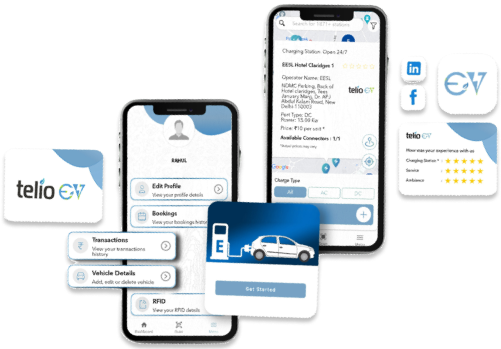How Much Do You Know About EV Charging Management Software?
How Much Do You Know About EV Charging Management Software?
Blog Article
Enhancing Electric Vehicle Charging with Advanced Management Software

The rapid adoption of electric vehicles (EVs) has required the advancement of effective and user-friendly charging solutions. Central to this development are Electric Vehicle Charging Management Software (EV CMS) and EV Charging Apps, which improve the charging process for both operators and users.
Understanding EV Charging Management Software
EV Charging Management Software serves as a comprehensive platform that enables Charge Point Operators (CPOs) and other stakeholders to monitor, manage, and optimize EV charging stations. Key functionalities consist of real-time tracking of charging stations, user authentication, payment processing, and energy management. By incorporating these features, the software ensures efficient operation and boosts the user experience.
Key Features of EV Charging Management Software
1. Real-Time Monitoring and Control: Operators can manage the status of charging stations, track energy usage, and address issues promptly.
2. User Authentication and Access Control: The software manages user gain access to, making sure that only authorized individuals can utilize the charging centers.
3. Payment Processing: It assists in seamless transactions, supporting numerous payment techniques to cater to varied user choices.
4. Energy Management: By optimizing energy distribution, the software reduces functional costs and supports grid stability.
5. Reporting and Analytics: Comprehensive data analysis help in informed decision-making and tactical preparation for network expansion.
The Role of EV Charging Apps
EV Charging Apps are created to offer EV owners with convenient access to charging facilities. These applications offer functions such as locating nearby charging stations, real-time schedule updates, navigation support, and remote tracking of charging sessions. By improving accessibility and user engagement, these apps play a vital role in promoting the adoption of electric vehicles.
Combination with Open Charge Point Interface (OCPI)
The Open Charge Point Interface (OCPI) is a standardized protocol that facilitates interoperability in between different EV charging networks. Combination with OCPI allows for seamless roaming, enabling users to gain access to multiple charging networks with a single account. This interoperability Nearby Charging Station improves user benefit and expands the availability of charging infrastructure.
Advantages of Implementing Advanced Charging Solutions
- Enhanced User Experience: User-friendly interfaces and trustworthy services increase customer fulfillment and loyalty.
- Operational Efficiency: Automation and real-time tracking lower manual intervention, reducing functional costs.
- Scalability: Advanced software solutions support the expansion of charging networks to fulfill growing need.
- Revenue Generation: Flexible pricing models and effective payment processing open new income streams for operators.
Conclusion
The combination of EV Charging Management Software and user-centric EV Charging Apps is critical beforehand the electric vehicle community. These innovations not only enhance operations for service providers however also considerably improve the charging experience for users. As the EV market continues to grow, the adoption of such innovative solutions will be instrumental in satisfying the increasing need for efficient and accessible charging facilities. Report this page